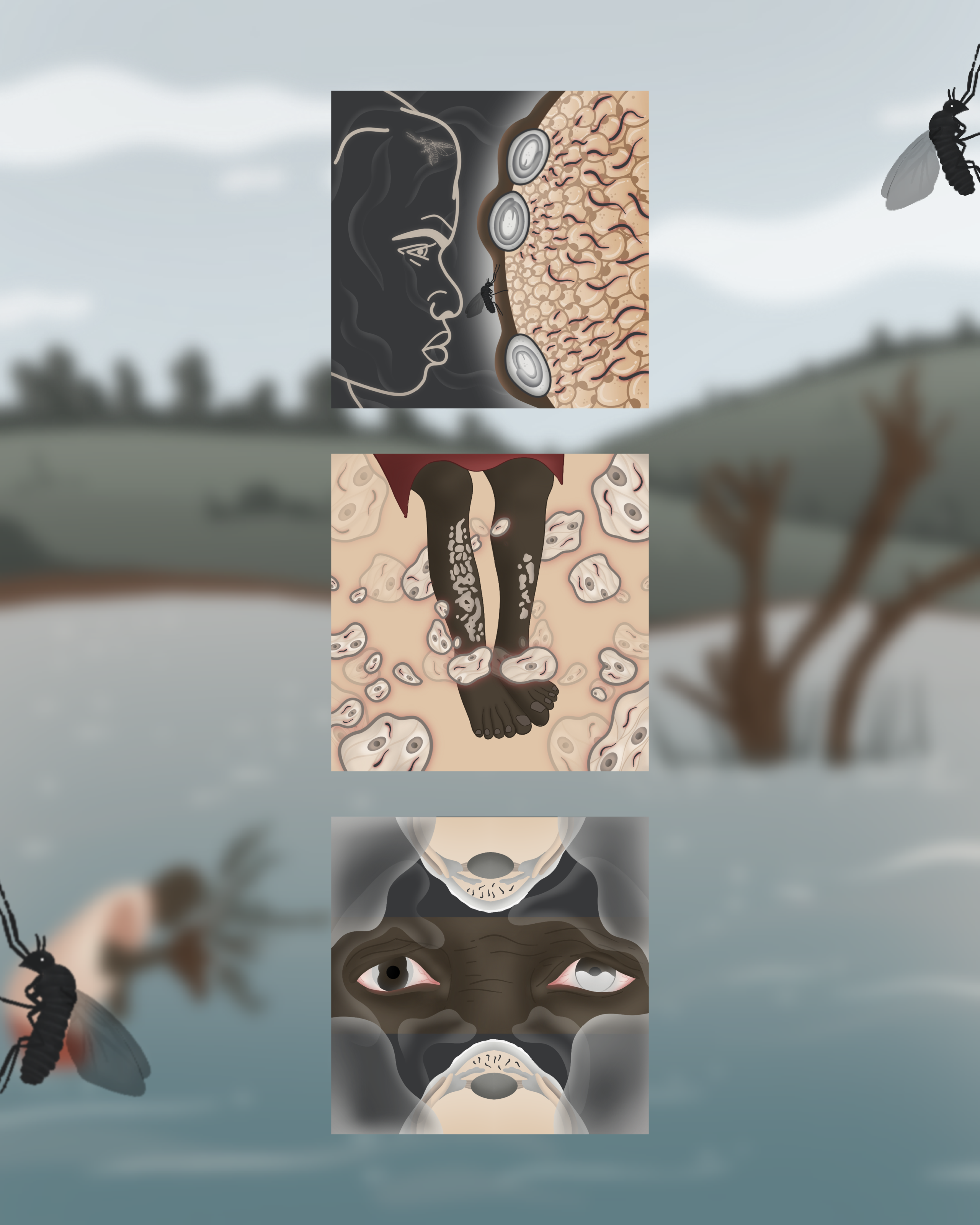
About River Blindness
River blindness, also known as onchocerciasis, is an eye and skin infection caused by parasitic worms. People with river blindness suffer from intense itching and may become permanently blind from the disease without treatment.
Overview
River blindness is the second leading cause of blindness caused by infection.1 The majority of people at risk of river blindness live in African countries, two countries in Latin America, and Yemen. River blindness is spread by the bite of blackflies that live near fast-flowing water. In the years before the disease could be effectively treated, communities abandoned entire villages in fertile river valleys out of fear of the disease, and children missed school to care for their elders who had gone blind.
Over the past five decades, enormous progress has been made to eliminate river blindness. Treatment with Mectizan® (ivermectin) and control of blackflies that spread the infection have returned health and wealth to millions of people. Communities repopulated nearly 25 million hectares of previously abandoned land, estimated to produce enough food to feed 17 million people annually. 2 In Niger, young girls who were treated for river blindness earned more over their lifetimes as a result of additional years of schooling.3
When we visit communities, we no longer see little children leading the blind but instead going to school.
– Daniel Boakye,
The END Fund Senior Technical Advisor,
International Programs

Key Facts
246 million
people still require annual treatment
34
countries that require regular mass drug administration to prevent river blindness
4
countries achieved verification of elimination by the World Health Organization
The Curse, the story of Mathawl and river blindness
NIGER’S TRIUMPH OVER RIVER BLINDNESS
Fifty years ago, 70 percent of Niger’s population was living with the parasite that causes river blindness. Today, the country is on the cusp of becoming the first in Africa to eliminate the disease.
The country spent the first years of its river blindness control program spraying rivers with larvicide to kill the blackflies that spread the disease. But the turning point came in 1987, when the pharmaceutical company Merck began donating a new drug, ivermectin, that is now the standard treatment against the disease.
“Ivermectin gave a lot of hope to the country,” said Dr. Salissou Adamou Batchiri, Niger’s national coordinator for lymphatic filariasis and onchocerciasis.
By 2002, levels of the disease in Niger were down to just 0.02% of the population. New generations of people were spared the devastating health effects of river blindness. The economic benefits were also considerable – more people could stay in the workforce instead of having to tend to blind family members, which added $2.3 billion USD to Niger’s economy.1

By the 2020s, finding anyone blinded by the disease in Niger became a difficult task. “I am the only one in my village to become blind,” said Nassar Banga, an elderly gentleman who endures the effects of the disease he contracted in his youth. “Since going blind I cannot go anywhere, I cannot travel. My life has been nothing but suffering.”
Determined to prevent resurgence, the country’s onchocerciasis program tested 16,000 children to determine if the disease was truly gone. Not a single child tested positive, which provided proof that elimination had been achieved. Niger has applied for verification of elimination from the World Health Organization, a major milestone for the country and the continent. This success provides a blueprint for other African countries to achieve elimination.
“I felt proud for those who were still afraid of the disease,” said Dr. Salissou. “I am proud to go back and tell them, ‘You can sleep well today. River blindness is over.’”

THE END FUND’s ROLE in elimination of river blindness
In 2023, the END Fund supported programs for river blindness in 20 countries, primarily through the Reaching the Last Mile Fund. The Reaching the Last Mile Fund is a ten-year, multi-donor initiative led by His Highness Sheikh Mohamed bin Zayed Al Nahyan, the President of the UAE, that aims to eliminate river blindness in Africa and Yemen.
The fund works by strengthening programs to eliminate river blindness, closing the gap between elimination and verification in countries with few or no cases of river blindness, and scaling up mass drug administration programs in countries where the disease is still a threat.
Other neglected tropical diseases






